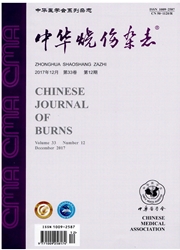

 中文摘要:
中文摘要:
肺脏是严重烧伤、脓毒症后最早发生功能不全且发生率最高的器官,目前由于缺乏针对性强的有效防治方法,严重烧伤以及脓毒症合并肺损伤患者的病死率达43%~72%。近年来,学者观察到多种肺部疾病中存在自噬活性的变化,越来越多的研究表明自噬与脓毒症急性肺损伤之间存在密切关系,本文通过阐述自噬与脓毒症急性肺损伤的关系,了解自噬在脓毒症急性肺损伤过程中的分子调控机制,进而为脓毒症急性肺损伤的临床治疗提供新思路。
 英文摘要:
英文摘要:
Sepsis is one of the most common pathogenetic causes of acute lung injury (ALI),and at present there is still a lack of effective targeted techniques and methods for its prevention and treatment.Autophagy is a homeostatic mechanism common to all eukaryotic cells,including adaption to environment,defense against invasion of pathogens,and maintenance of cellular homeostasis.Autophagy is also involved in a variety of lung-related diseases.In septic lung injury,autophagy not only serves to dissipate dysfunctional organelles,but also inhibits the release of inflammatory cytokines.This review aims at eliciting the role of autophagy in sepsis-induced ALI and further exploring the potential targets of autophagy in inhibiting inflammation,in an effort to provide a new perspective for clinical treatment of sepsis-induced ALI.
 同期刊论文项目
同期刊论文项目
 同项目期刊论文
同项目期刊论文
 期刊信息
期刊信息
